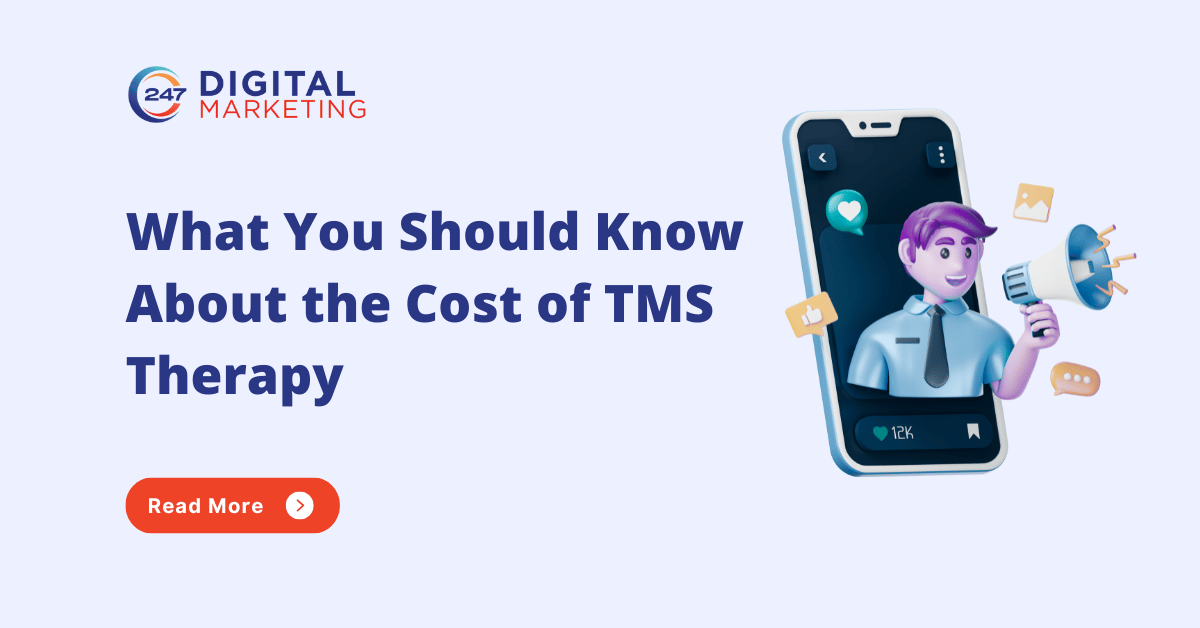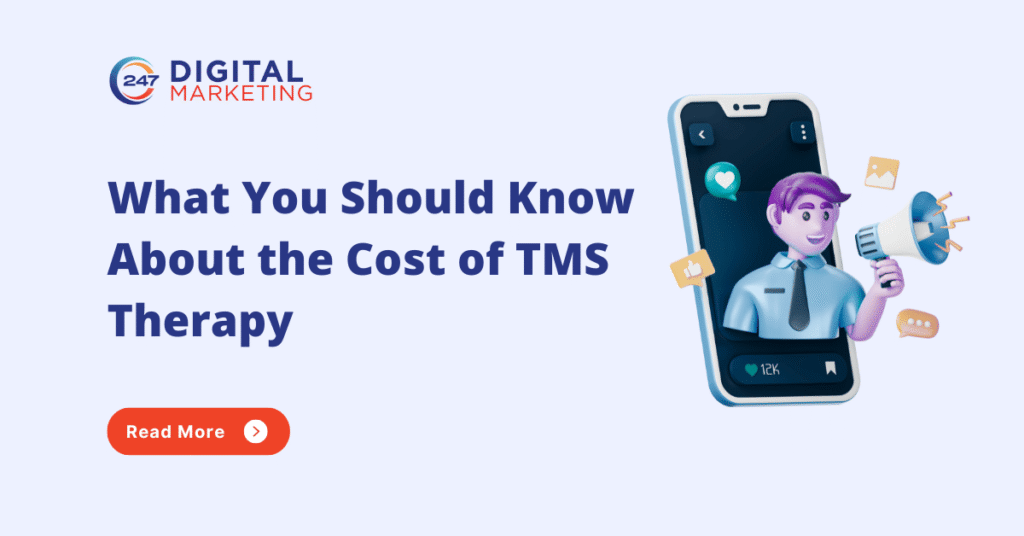

TMS (Transcranial Magnetic Stimulation) is fast becoming one of the most talked-about alternatives for treatment-resistant depression. It offers a non-invasive option and fewer systemic side effects than many medications. But one question often lingers: how much does TMS truly cost, and is it worth the investment?
In this article, we’ll dive into what drives TMS pricing, what patients can expect to pay, how insurance might help, and tips to make it more accessible.
Why TMS Is Different and Why That Impacts Cost
Unlike traditional treatments that rely on medications or talk therapy, TMS delivers targeted magnetic pulses to specific brain areas. This technology requires specialized equipment, trained clinical staff, and strict safety protocols. At HWS Center, every session involves calibrated machinery, oversight by trained professionals, and individualized planning based on your medical profile.
These higher overheads are part of what makes the procedure pricier than routine outpatient visits or generic medications. Still, many patients view the cost relative to long-term benefits, and those benefits can be substantial.
What Factors Influence the Price
The cost of TMS therapy can vary widely depending on multiple factors. Some of the key cost drivers include:
- Session count and protocol: A full course often spans 30–36 sessions, though some protocols use fewer or more depending on individual response.
- Clinic infrastructure and location: Urban centers or clinics using top-tier equipment may charge more.
- Clinical staffing: Having licensed psychiatrists, radiology techs, or neurologists involved may raise costs, but also adds safety and precision.
- Customization and monitoring: Tailored treatment loops (adjusting intensity, mapping brain regions) can increase cost but often improve outcomes.
- Equipment and maintenance: High-end TMS machines require calibration, upkeep, and replacement parts.
Because of these variables, one patient might pay significantly more (or less) than another, even in the same city.
Typical Price Ranges and What to Expect
On average, many clinics charge $300 to $500 per session, though rates may vary above or below this range depending on location and service level. Over a full treatment course (30–36 sessions), the total cost might fall between $9,000 and $15,000 before insurance contributions.
However, many patients don’t pay the full amount upfront. At HWS Center, we take a transparent approach: we offer a breakdown of what your insurance may cover, help estimate out-of-pocket costs, and provide payment plans to ease the upfront burden.
Some patients start seeing clinical benefits before completing all sessions, which may reduce further costs if adjustments are made.
When Insurance Helps, and When It Doesn’t
One of the most important questions is whether insurance will cover TMS. For many patients with major depressive disorder who have tried and failed at least two antidepressant trials, insurers may approve TMS coverage, but that’s not universal.
Insurance companies typically require documentation showing that other treatments were attempted first. If your insurance provider covers TMS, they may reimburse a portion or all of the cost, leaving you with co-pays or coinsurance. In states or plans where it’s not covered, you may have to bear more of the expense.
Comparing Cost with Value
While the upfront cost may seem high, many patients and clinicians view TMS as a high-value investment, especially for treatment-resistant depression. Here’s why many feel the expense is justified:
- Reduced dependency on medications: Over time, the need for expensive or multiple medications may diminish.
- Fewer hospitalizations or emergency interventions: Preventing relapse or deterioration can avoid much higher costs later.
- Improved functioning and quality of life: Returning to work, better relationships, and mental stability often have real financial and personal benefits.
- Longevity benefits: Many patients sustain improvements long after treatment ends, making per-session cost spread out over years.
In short, while the cost of TMS therapy may be higher than conventional treatments, for many people it represents a doorway to relief and stability that other approaches have failed to provide.
Tips to Make TMS More Affordable
If you’re considering TMS but concerned about cost, here are strategies that might help:
- Ask about sliding scales or payment plans. Some clinics break the total into installments.
- Confirm insurance coverage ahead of time, with benefit verification and preauthorization.
- Look for clinical trials or grants in your region, which may subsidize treatment costs.
- Explore hybrid protocols (fewer sessions or tailored dose protocols) under clinical guidance.
- Factor in tax deductions or FSA/HSA applicability, mental health treatments may qualify.
Working closely with a clinic that values transparency, like HWS Center, can reduce surprises and help you plan finances more confidently.
Is TMS Worth It? A Balanced Perspective
TMS isn’t a miracle cure, but for many individuals who failed to respond to medications, it offers a powerful, evidence-backed alternative. Clinical studies show significant remission rates in patients with treatment-resistant depression, and many report durable gains in mood, energy, cognition, and daily functioning.
The value of TMS is more meaningful when you look beyond sessions and dollars, it’s about regaining control, reducing burdens of chronic disorder, and improving long-term outcomes. When weighed against the cumulative costs of medications, side effects, lost productivity, and diminished quality of life, the investment can make sense for many people.
Conclusion: Understand the Investment, Then Reclaim Stability
Cost is a real concern with any advanced treatment, and TMS is no exception. But the expense doesn’t have to mean mystery or risk. By understanding the factors that drive cost, verifying your insurance, and working with providers that value transparency, you can approach the decision strategically.
If you’re exploring TMS as an option, take a step toward clarity by consulting experienced professionals who can explain pricing, coverage, and what your personal path might look like. It could be the beginning of a journey back to balance, and worth it in more ways than one.
Mitesh Patel is the co-founder of 247 Digital Marketing, LawFirm Marketing and a columnist. He helps companies like Emerson and other top Fortune 500 compnies to grow their revenue.



